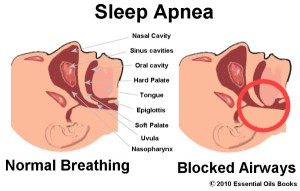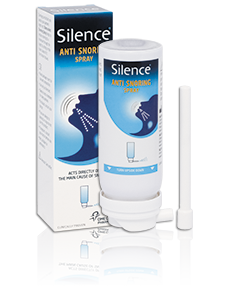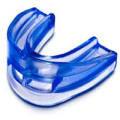Do you have sleep apnoea or are you a throat snorer?
Do you wake up in the middle of the night because you suddenly stop breathing?ORDo you wake up in the morning feeling exhausted even after a full night’s sleep? |
This is sleep apnoea. Sleep apnoea is a medical condition whereby the walls of the throat relax and collapse inwards, causing a temporary blockage of the throat passageway. Many people actually mistake sleep apnoea for snoring BUT there is a key difference.
Sleep apnoea causes a blockage of the airway whereas snoring is the narrowing of the throat passage. During snoring, the throat muscles vibrate against each other to cause the snoring sound, but in sleep apnoea the temporary blockage of the throat passage is responsible for this sound.
The sleep apnoea blockages can occur up to 30 times an hour and a 100 times a night. It is possible to have a partial blockage of the airway, which is called hypopnoea. It is a very serious condition, as the brain and the rest of the body are not receiving oxygen during this period.
There are 2 main types of sleep apnoea, namely obstructive sleep apnoea and central sleep apnoea.
Obstructive sleep apnoea is caused by a blockage of the airway due to the relaxation of the throat muscles (as referred to above). This blockage can cause you to stop breathing for up to 10 seconds.
Central sleep apnoea is a type of sleep apnoea where the brain fails to send impulses to the airway muscles to cause breathing.

Are you a throat snorer or sleep apnoea patient?
It is possible to have sleep apnoea as well as being a throat snorer. Both these conditions are most commonly found in men, and share certain risk factors for example, being overweight, having bulky throat tissue or even tonsillitis.
It is vital that you determine whether you are a throat snorer or 
whether you have sleep apnoea. If you answered yes to either of the questions below then it is likely that you have sleep apnoea.
-
Do you wake up in the morning feeling exhausted even after a good night’s rest?
Or
-
Wake up suddenly as you have stopped breathing?





